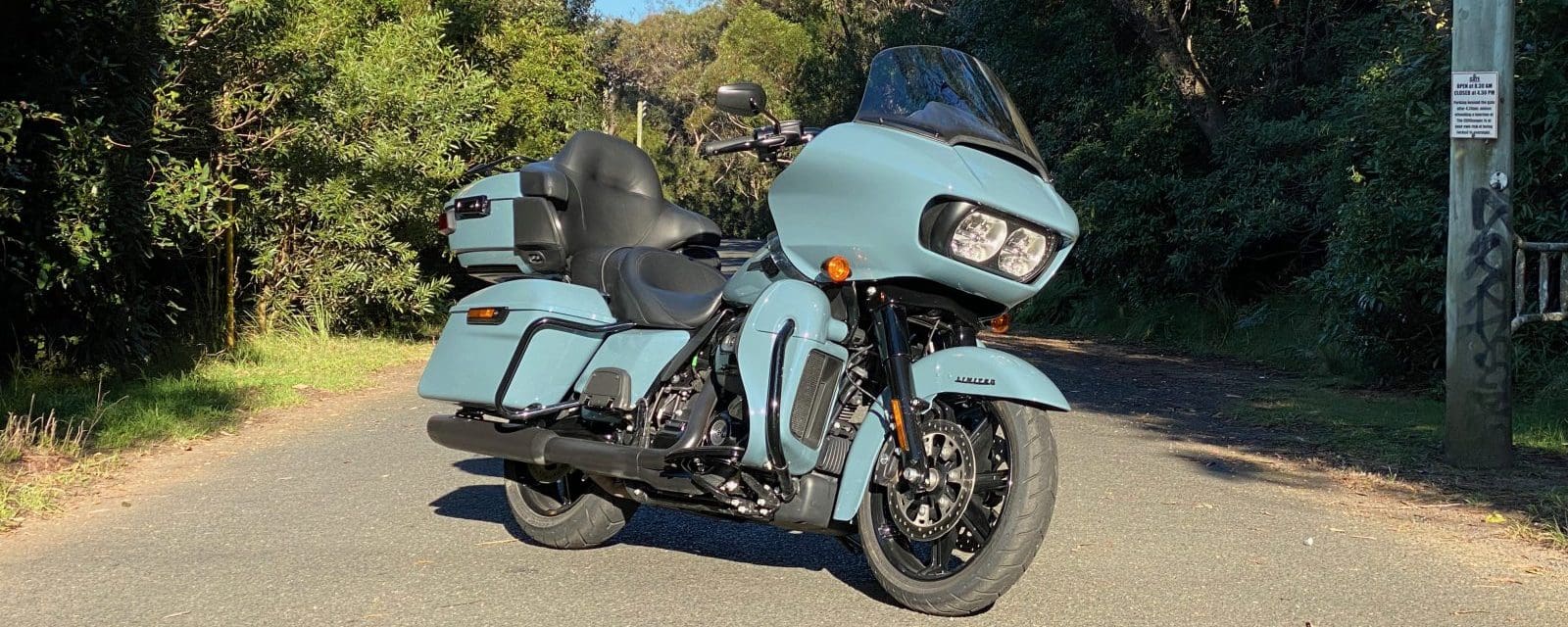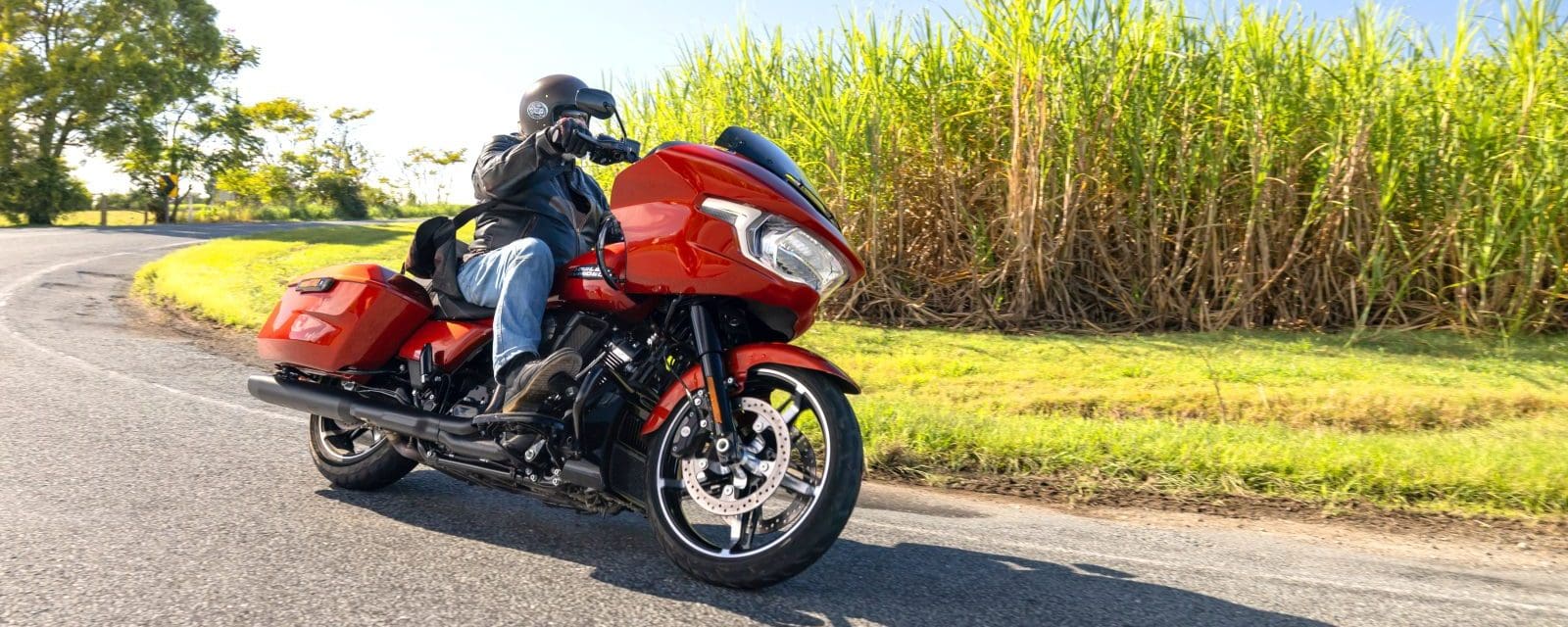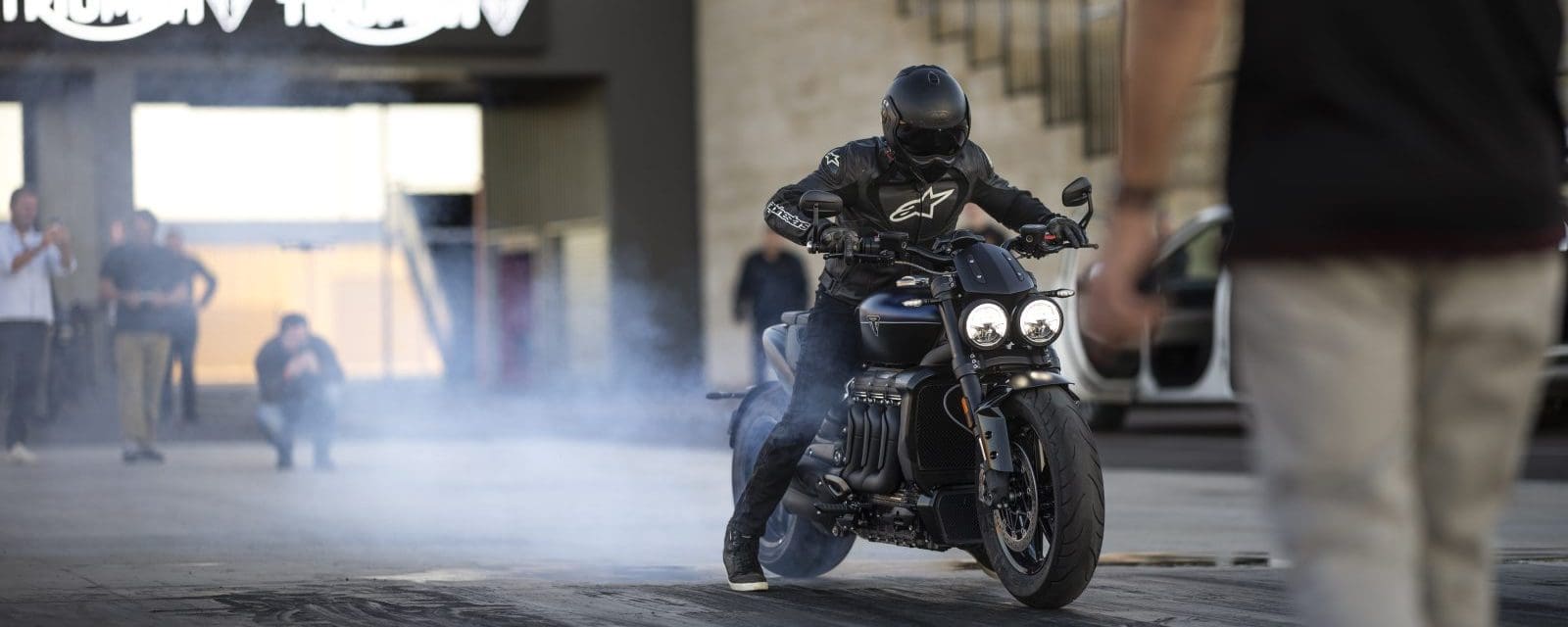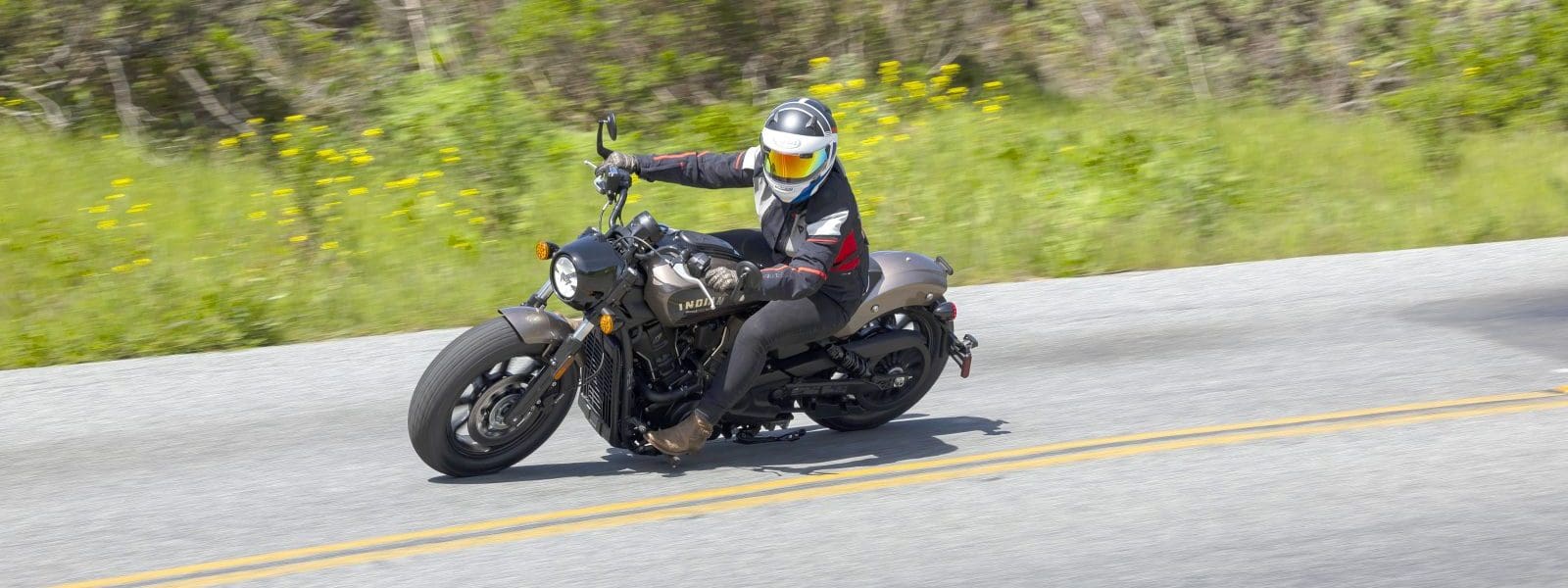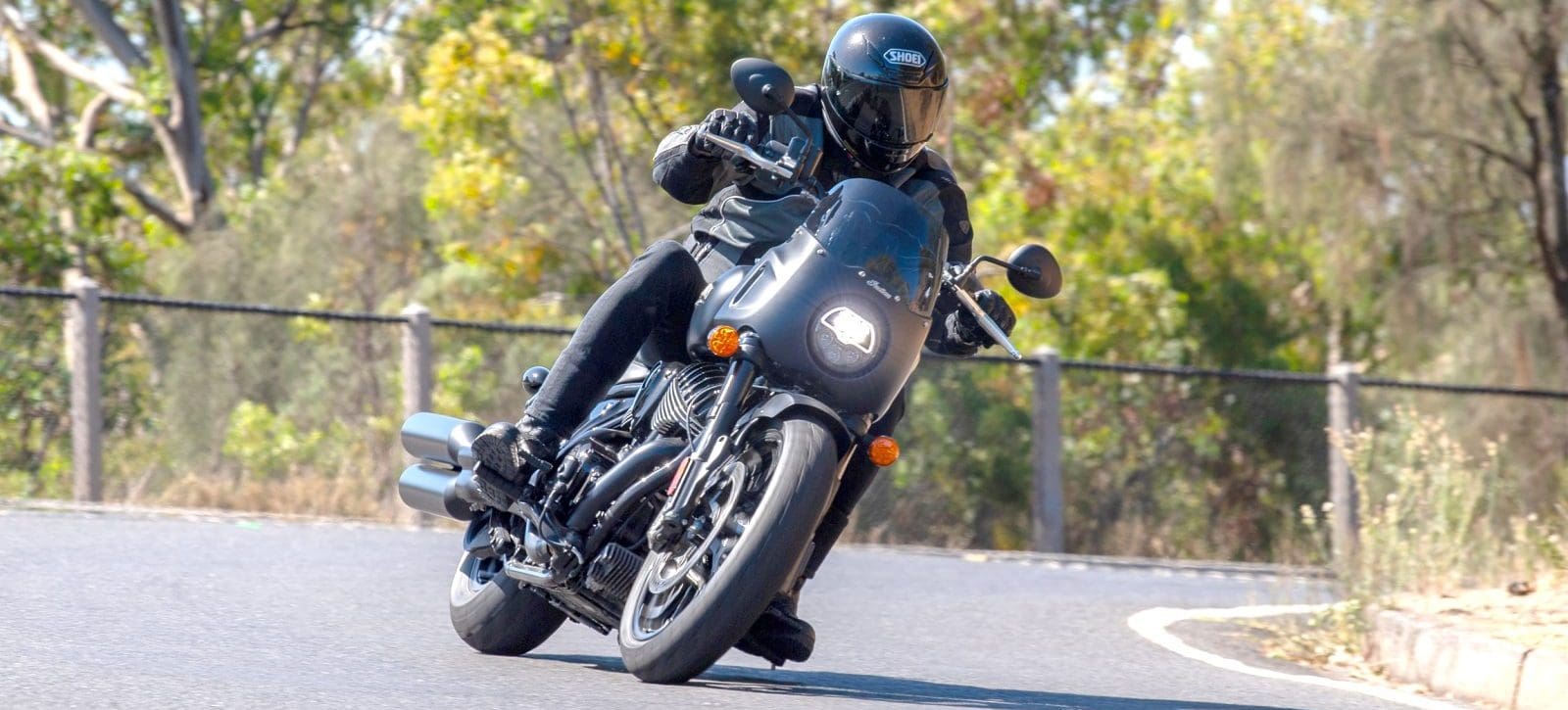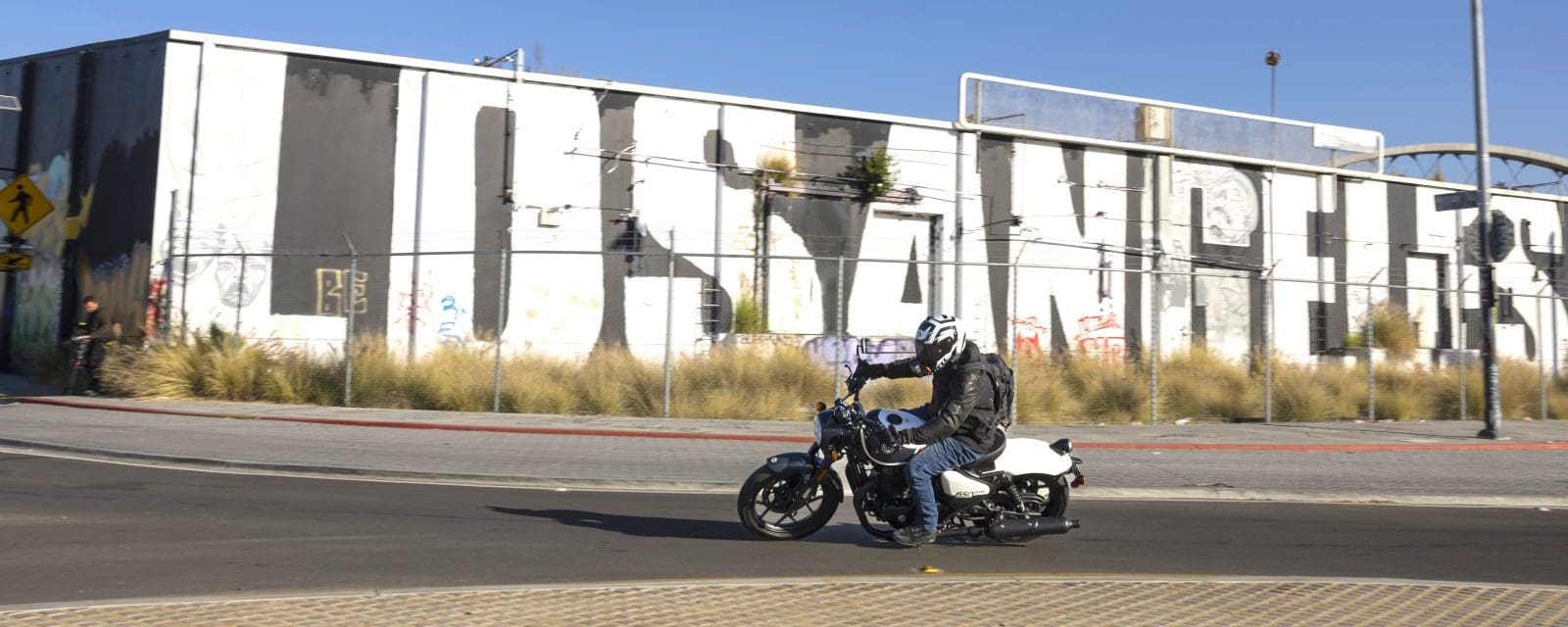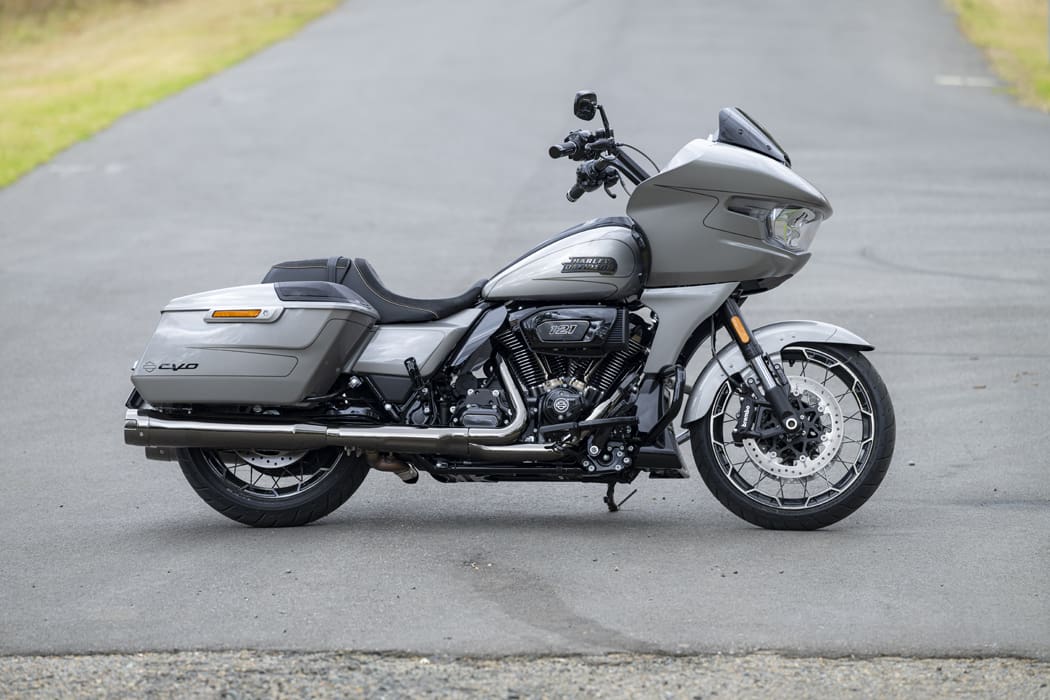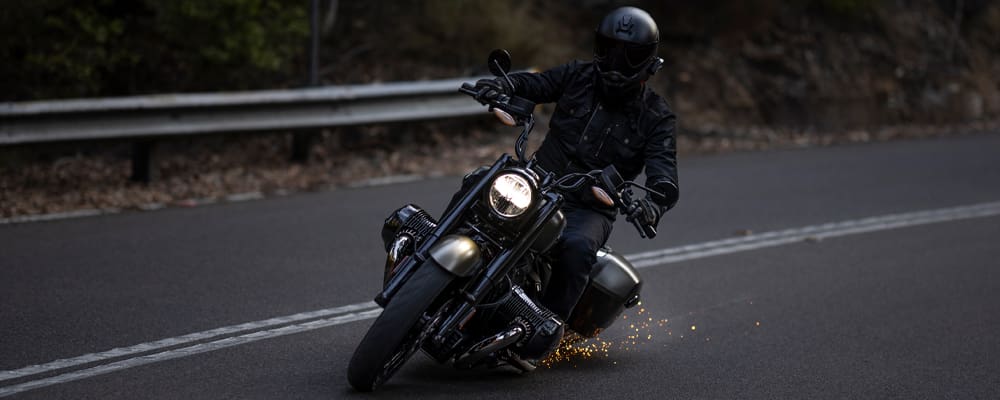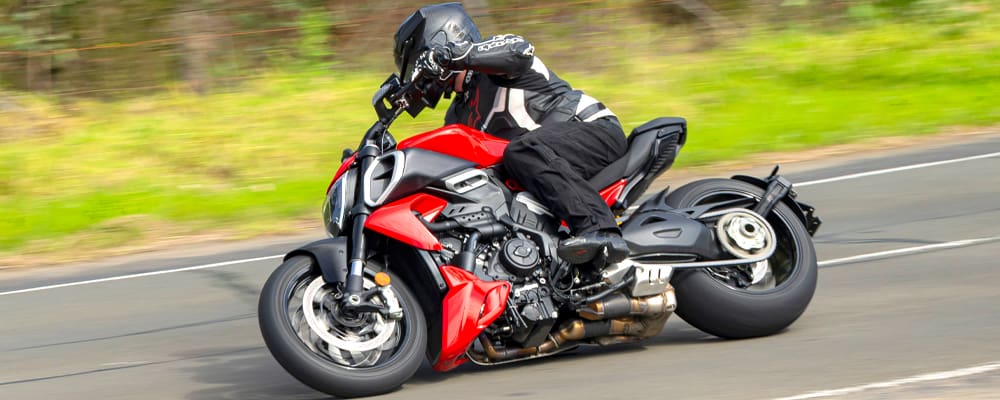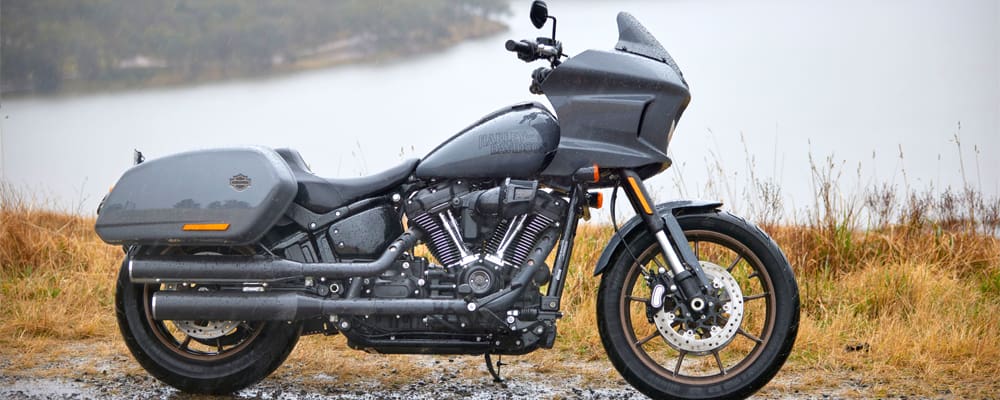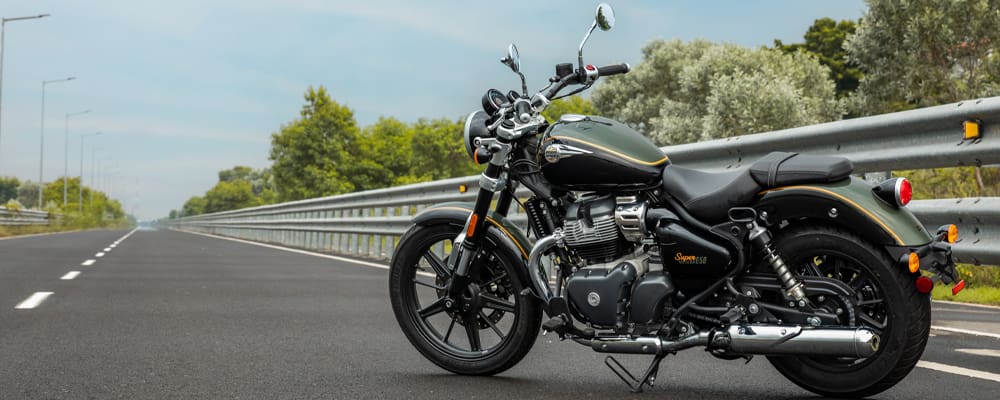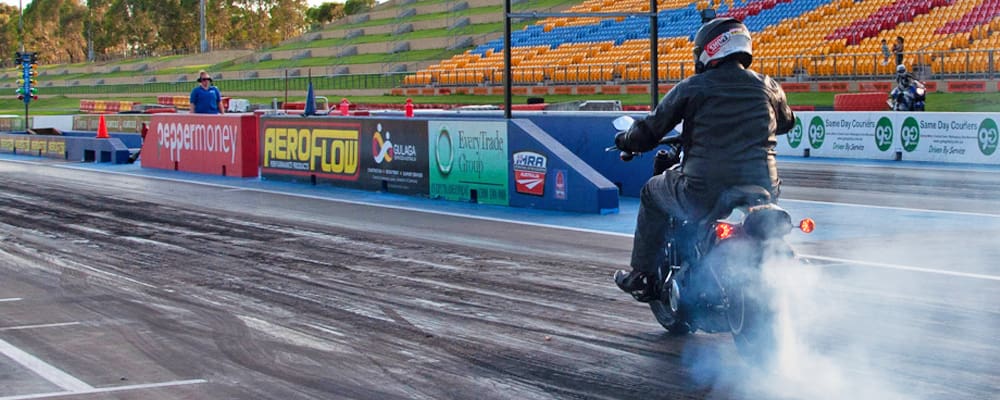I usually have a formulaic method when it comes to writing a bike test, presenting information in an orderly manner to make sure I don’t miss anything, starting off with the tech details and equipment, then moving on to the ride impression, covering performance, handling, ride comfort, ergonomics and practicalities, etc. With the Sportster S, I’m going to write this piece differently, partly because Pete Vorst attended the initial Aussie press launch and looked after all the tech details in this story, which we’ll start with, while I rode the Sportster S over my regular bike-test loop and will review what I like about the Harley-Davidson Sportster S and what I don’t like about the Harley-Davidson Sportster S.
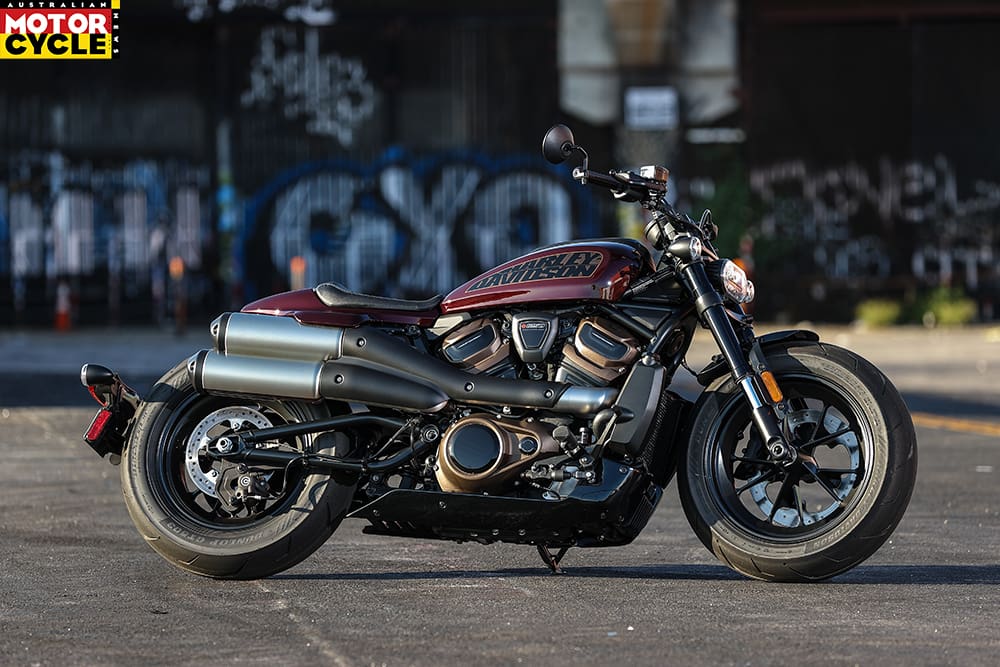
What is it, technically?
It might have a familiar name, but Harley’s new Sportster S is a totally new and different beast to the air-cooled 883 and 1200cc Sportsters we grew up with. The Sportster S is lighter than an 883 Sporty, packs way more punch than a 1200 Sporty could ever muster, stops better and handles better – the S puts the sport back into the Sportster name.
The fact that it performs better than any Sportster before is a credit to Harley’s engineering team, because the Sportster’s development was heavily driven by the design team. The crayon wielders wanted a slammed custom look for the new Sporty while also giving a nod to previous models in the Motor Company’s longest-running nameplate. What they ended up with is the Sportster S you see before you and then it was left to the engineers to make it work.
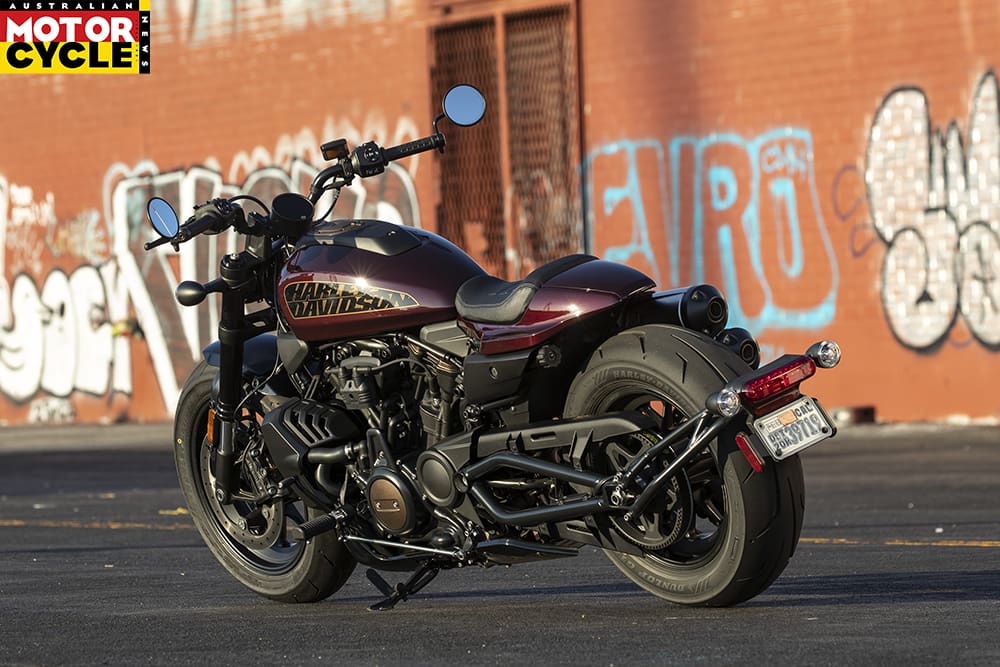
The designers presented the engineers with a bunch of issues to resolve, such as the fat 160/70R17 and 180/70R16 front and rear tyres – a nod to the outgoing Sportster Forty-Eight, which presented potential handling issues, the XR750-style upswept exhaust which presented thermal-management issues and that slammed look, which presented a raft of issues from impeded ground clearance to suspension-travel compromises.
What the design team also stressed was the importance of reducing weight to increase performance, and a low seat height so the Sportster S would be a more accessible ride to more people. Gee, they didn’t ask for much. But on these fronts the engineers delivered. The whole package weighs in at a claimed 228kg, 28kg lighter than the discontinued Iron 883, and the seat height is a very manageable 765mm.
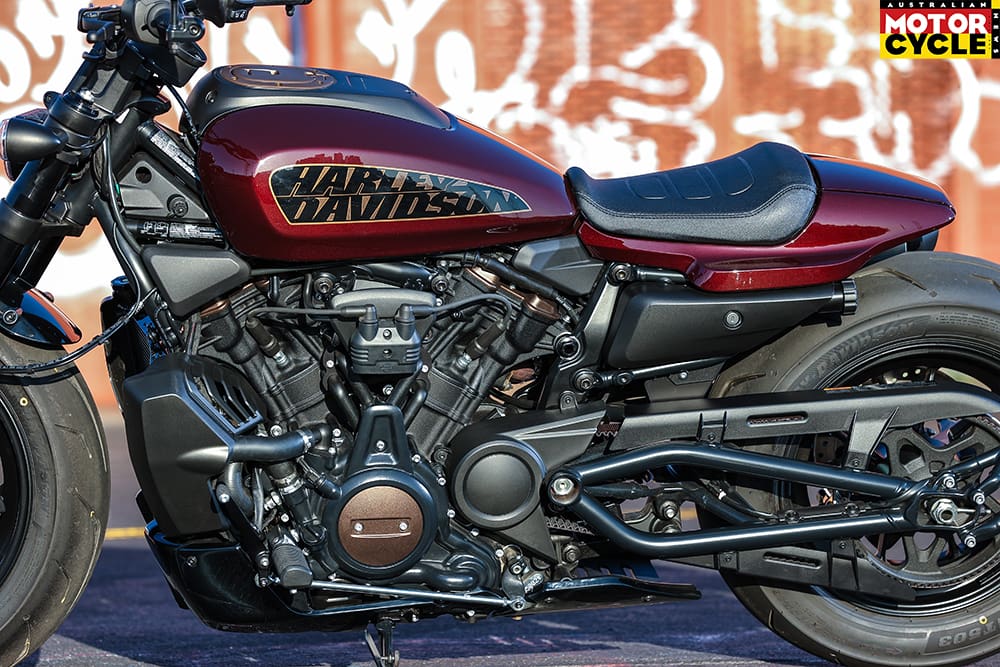
Like most Harleys, the engine takes centre stage and that has been taken to the limit on the S with its minimalist design, giving you the impression that the S is just an engine with a couple of fat rims hanging off it.
The engine, although derived from the Pan America’s Revolution Max 1250 powerplant, is significantly different. The 60° Revolution Max 1250T V-twin runs a lower compression ratio, different cylinder heads, barrels, pistons and cams, smaller valves and altered VVT timing all aimed at providing the Sportster with a broader spread of torque and a more cruiser-like feel.
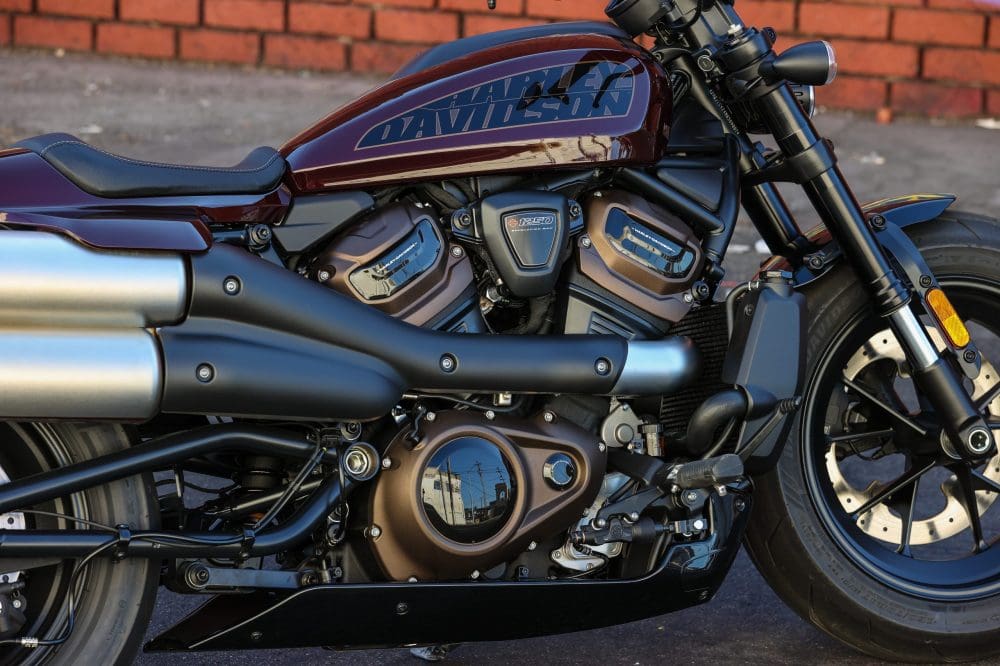
It retains the 1252cc capacity of the Pan Am’s donk, but the internal changes see peak power drop from 112kW at 9000rpm to 90kW at 7500rpm, while peak torque remains the same at 127Nm but it’s delivered 750rpm lower in the rev range at 6000rpm. Harley claims that these engine changes, combined with intake alterations, increase torque by 10 percent between 3000-6000rpm.
The water-cooled Rev Max T also sports a liquid-cooled oil cooler which ensures a more constant oil temperature, dual counter balancers to smooth out engine vibes and is mated to a six-speed transmission with a slipper clutch to rain on your backing-it-in parade.
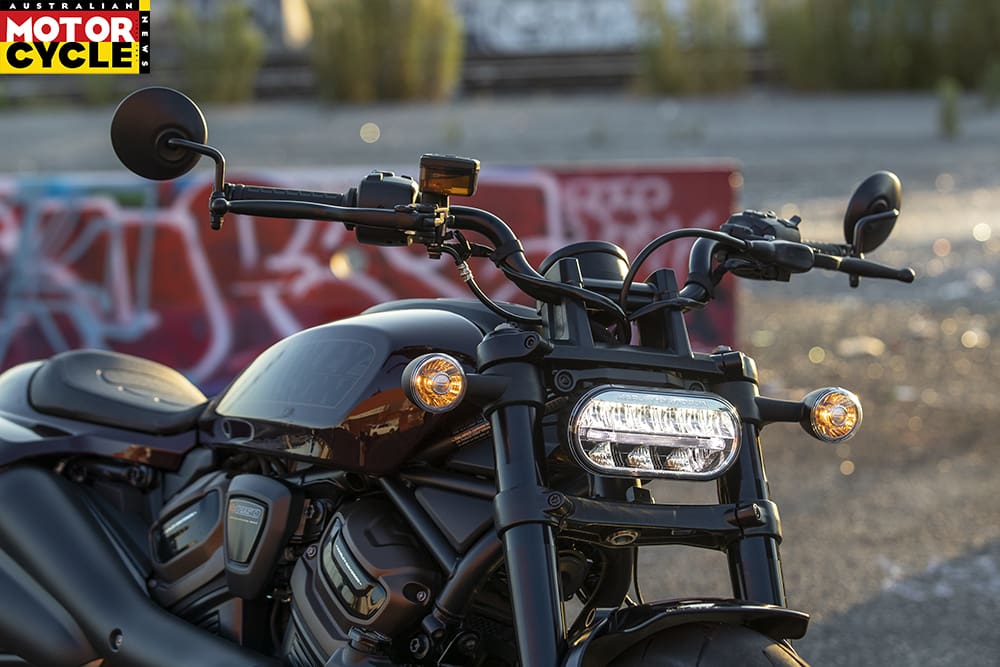
The EFI engine is fed by dual 50mm downdraft throttle bodies which drink from a rather small 11.8L tank with air drawn from the under-tank airbox with a washable filter. The upswept 2-1-2 exhaust is constructed of 304 stainless and three-layer heat shields to stop you from burning layers of skin off your right leg.
To give the S its compact, engine-on-wheels look, a three-piece frame is utilised which uses the Rev Max T as a stressed member. A steel front frame, aluminium midframe and steel subframe all bolt directly to the engine with steel-trellis swingarm attaching to the stiff midframe.
Suspension duties are handled by a 43mm fully adjustable Showa USD fork and Showa monoshock that offers rebound and compression adjustment as well remote hydraulic preload adjustment via a knob just below your left bum cheek. Having a motorcycle with such a slammed look is not without its challenges; 92mm of suspension travel at the front and just 51mm at the rear keeps the look low and seat height manageable, but is a compromise for sure.
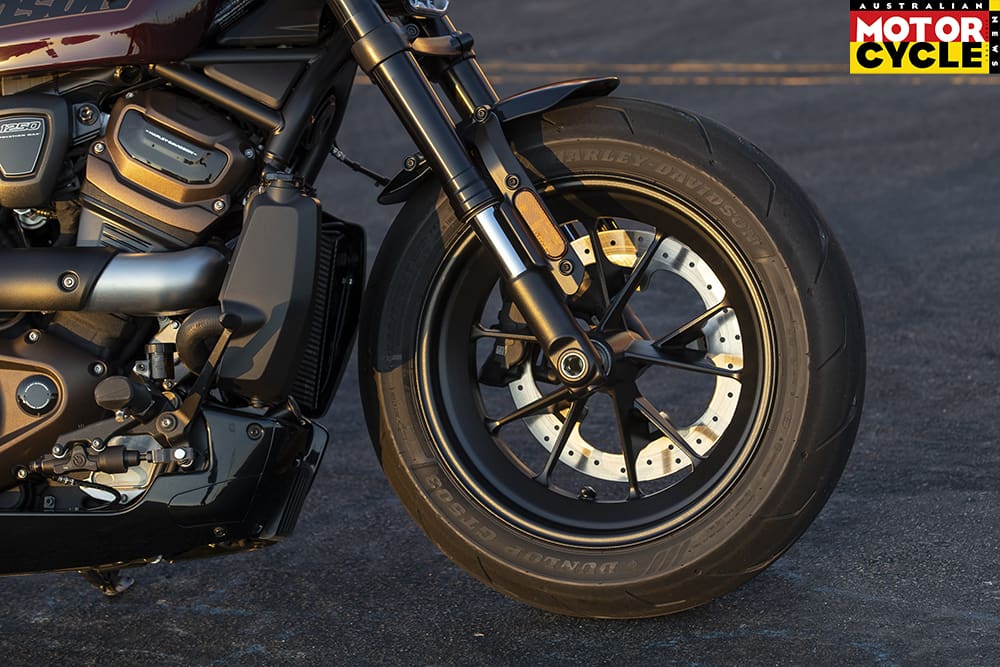
Braking is also a chalk-and-cheese affair when compared to previous Sporties, with the S running Brembo stoppers front and rear. A twin setup on the front would have been nice, however, the single four-piston, radially mounted Brembo mated to a 320mm disc is lightyears ahead of what we’ve become accustomed to with Harley – except for the Pan America and Livewire. The rear anchor setup consists of a twin-piston Brembo caliper clutching at a hefty 260mm disc and the braking package is complemented by cornering ABS.
This lean-angle sensitivity is controlled by a six-axis IMU that also controls a raft of rider aids including front wheel lift control, lean sensitive drag-torque slip control (which helps to reduce compression lock ups on the down shift) and cornering traction control.
The lean-angle sensitive traction control system is linked to wheelie control – not something that you associate with Harleys, but it’s needed in this case. The system can easily be deactivated when the Sportster is stationary and then a subtle dump of the clutch in first will have the front-end heading skywards.
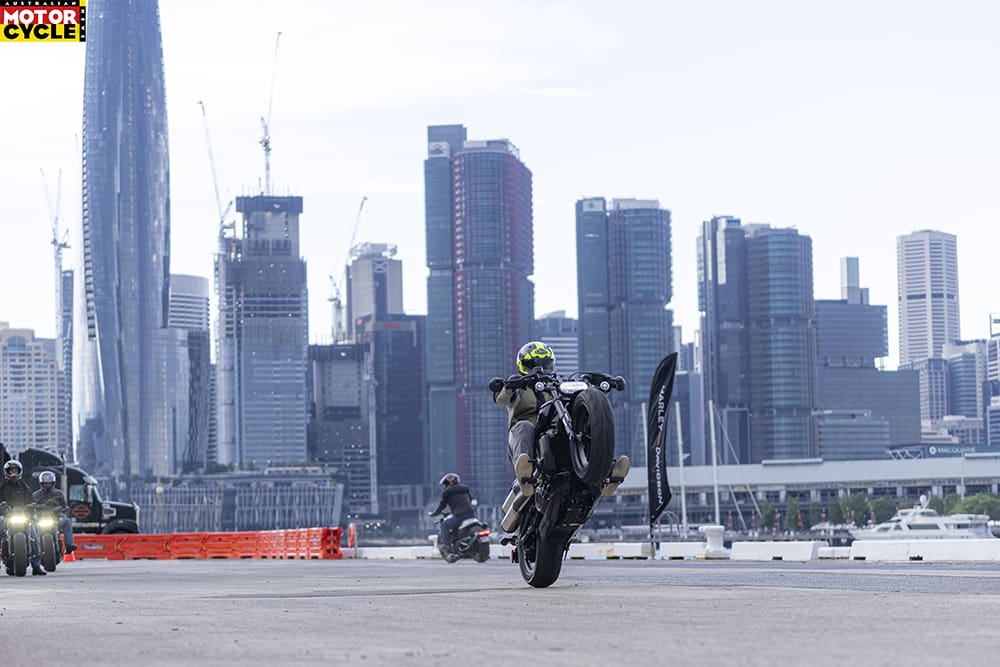
The level of intervention from each of the rider aids is determined by the mode you have chosen, and there are five to choose from. Buttons on the left- and right-hand switchblocks are used to navigate through the modes – which can be changed on the fly. You can also flick through various other options such as the factory cruise control and standard tyre pressure monitoring system.
From the ground up the Sportster S is all-new. And compared to the 1200 Sporty, well, there is no comparison, it does everything better despite its development being driven by the design team. The engineers had a hell of a job getting this oddly handsome looking machine to work but they got the job done. Just. It stops, it wheelies, it does burnouts and it goes hard… all while looking the business.
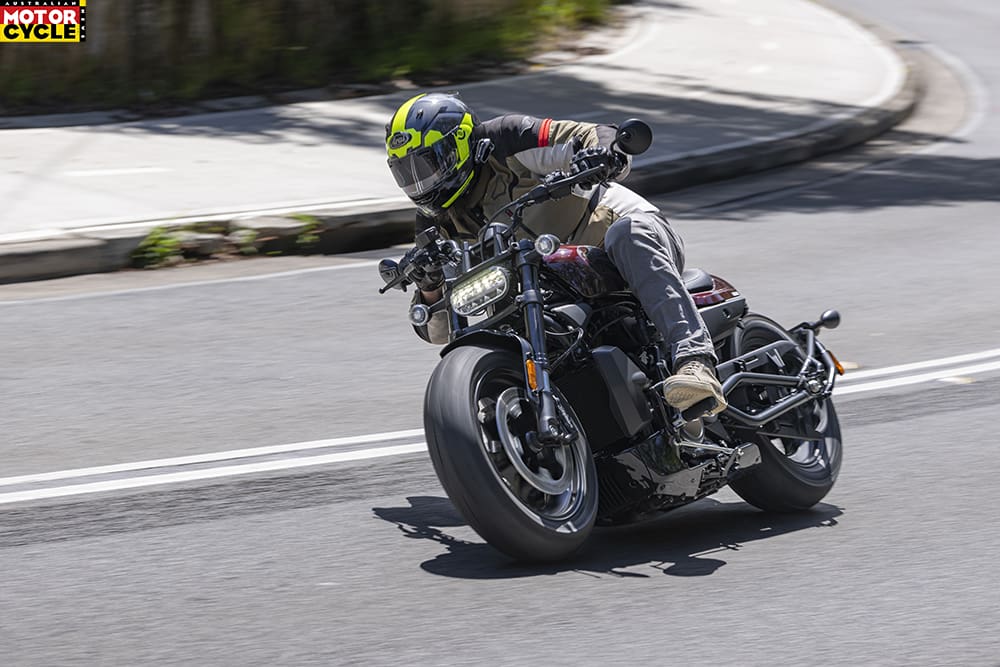
What we like
That 1250cc Revolution Max V-twin is an absolute ripper. It’s the same engine that debuted last year in the Pan America, but it has been retuned for use in the Sportster S. Peak power is down by 22kW, but peak torque comes lower in the rev range, so it churns out plenty of grunt down low. In fact, you can wind on the throttle from as low as 2000rpm in top gear and it will pull away cleanly – it has a meaty midrange, with impressive response between 4000rpm and the 6000rpm torque peak. And while overall gearing is slightly taller than the Pan America, the Sportster S is a substantial 30kg lighter; knock it down a cog or two, crack the throttle open and the Sportster S goes hard. Switch off the traction control and it’ll easily light up the rear or loft the front wheel.
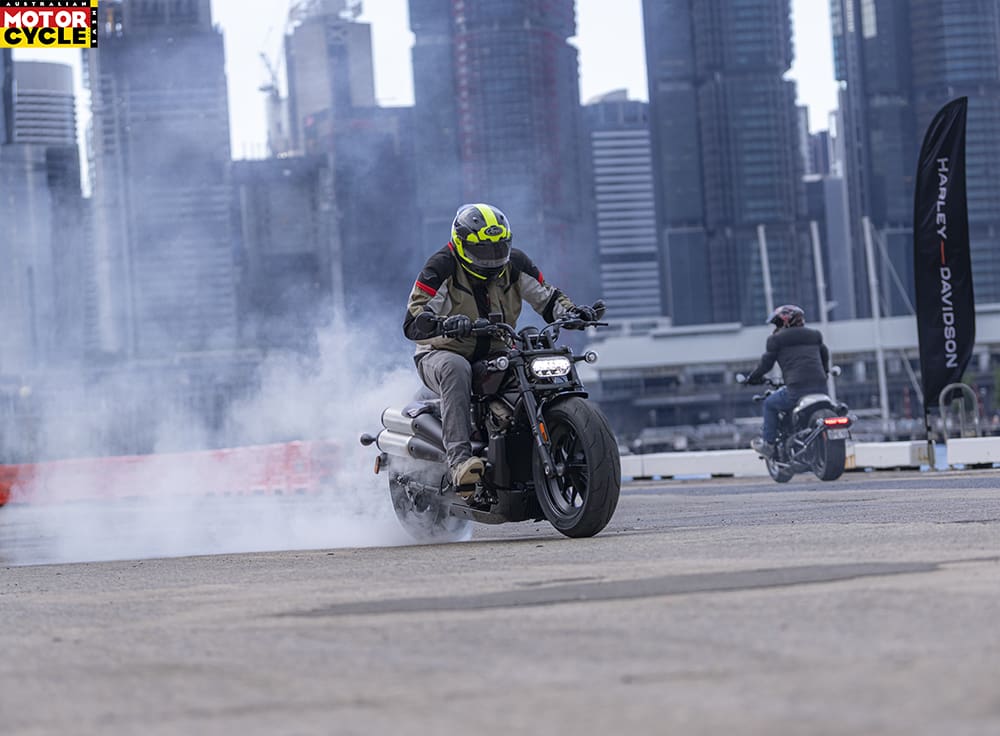
As well as the low-down torque, there’s plenty of poke on offer in the upper half of the rev range. Make no mistake, this Rev Max likes to… well, rev. And it’s smooth, like no Harley V-twin before it, thanks partly to the 60° V-twin’s 30° offset crankpins that result in a 90° firing order, and thanks also to the primary and secondary balancers. While this high-tech, modern, liquid-cooled, overhead cam, VVT engine may have lost much of the character of Harley V-twins of old, it more than makes up for it in performance.
Engine response and traction aids can be tailored to suit your mood or the road conditions. Ride modes include Road, Sport and Rain, and there are also two custom modes you can set up however you like. You can adjust parameters including engine power delivery and engine braking, as well as C-ABS and C-TCS intervention. Oh, and you don’t need an engineering degree to do it, and the ride modes can be selected on the move.
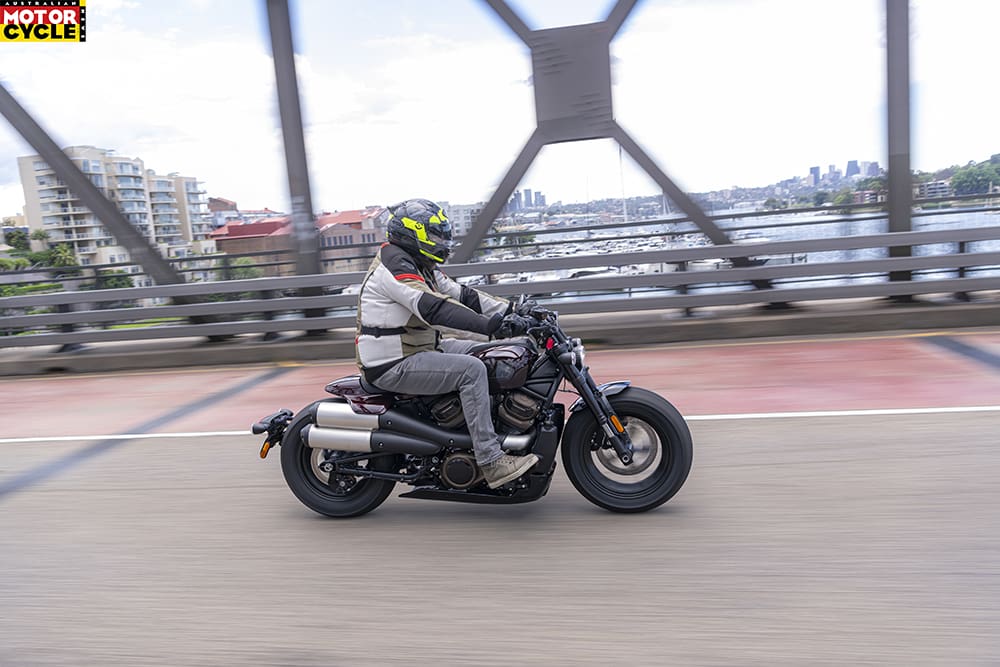
Like any self-respecting lout, I ran the Sportster S in Sport mode for much of my ride despite some inclement weather and some pretty sketchy conditions, but the cornering traction control did an admirable job of making sure I didn’t spear off into the scrub when grabbing a handful of throttle out of tight corners. Road mode provides a less-aggressive throttle map, while Rain mode significantly dulls response and power output and is probably best reserved for riding on ice.
As mentioned, you can also switch off C-TCS altogether, which also disables the Front-Wheel Lift Mitigation (wheelie control), but the bike needs to be stationary to do this via a button on the right-hand switchblock.
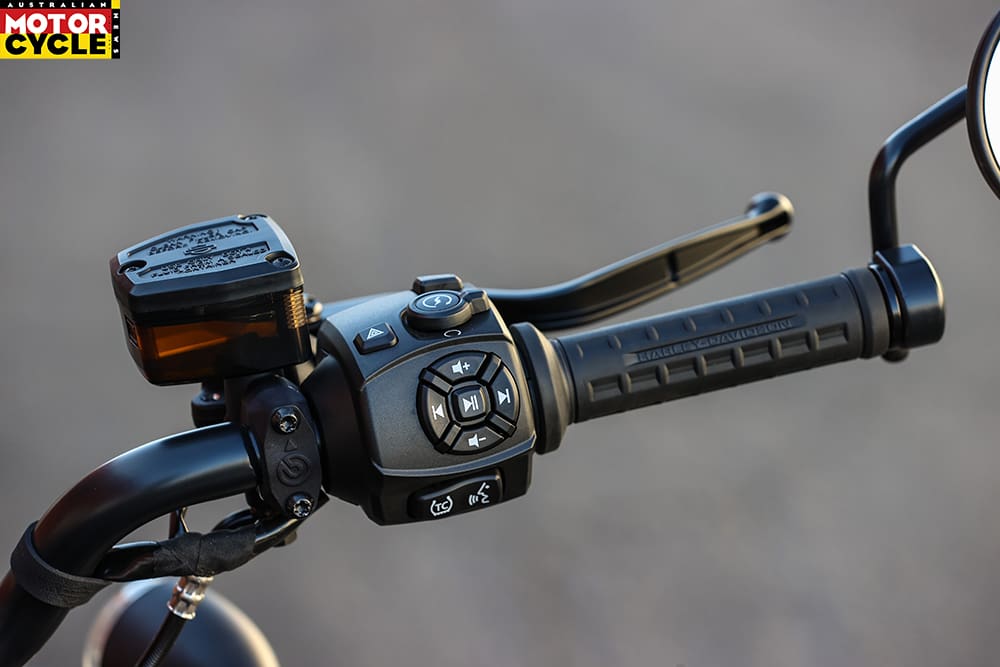
Harley-Davidson turned to Brembo when it came to stoppers on the Sportster S. Although there’s only a single 320mm disc up front, it’s gripped by a powerful-enough Brembo radial monobloc four-piston caliper that combined with the relatively large disc at rear pulls the bike up surprisingly well. It’s only when performing emergency stops that you might wish for an extra disc up front. The cornering ABS also works well, and in Sport mode the ABS intervention level seems just about spot-on.
The Sportster S is no one-trick pony, and as well as being able to pull wheelies and smoke up the rear, it can also deal with corners better than you might expect. There’s a claimed 34° of lean angle on offer, which means you can crank it over a fair way before the hero knobs scrape, but you need to muscle it through corners with that fat hoop up front. The front-end feels nicely planted once you’re cranked over but adjusting your line mid-corner requires a bit of effort, and occasionally a dab on the rear brake.
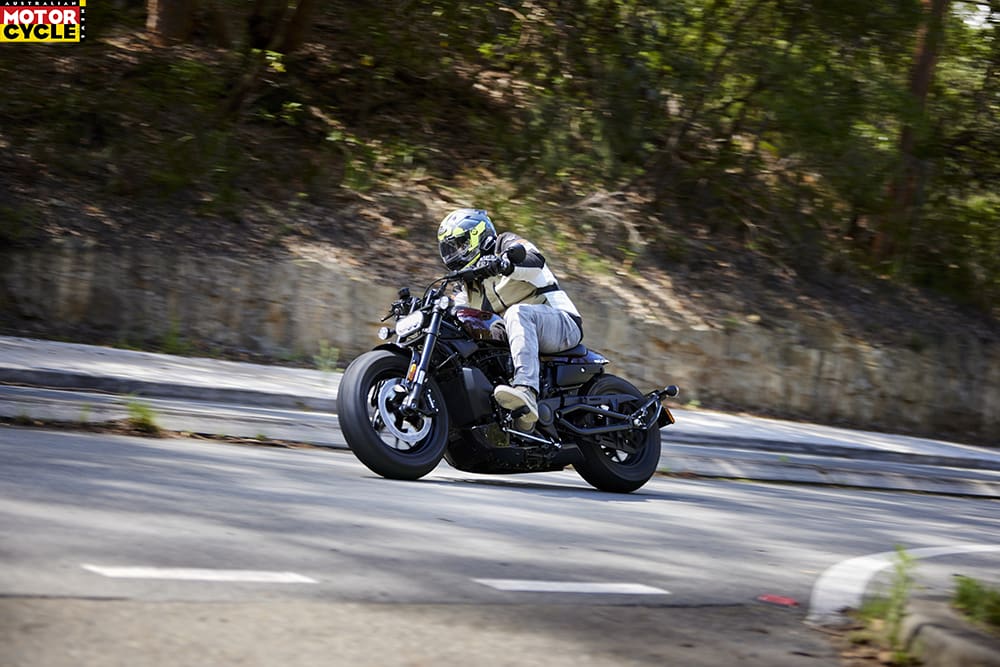
The gearbox is a smooth shifter, and it works well with the slipper clutch, which feels light and progressive at the lever. Gearing in the lower ratios is quite tall and I found myself downshifting to first gear a fair bit for tight corners, so the slipper clutch and the drag-torque slip control really come in handy. Highway cruising in top gear sees 3800rpm indicated on the tacho at 110km/h, and I reckon the Sportster S could handle a taller overdrive for those who spend a bit of time on the open road or on freeways. But hey, that’s not what the Sportster S is all about, despite there being a windshield in the options catalogue.
The 4.0-inch TFT display might not be all that big, but it’s bright, non-reflective and easy to read, with the main screen showing a big digital speedo, a graph tacho, fuel gauge and clock, as well as selectable odometer, Trip A, Trip B and fuel range options. You can scroll through screens via a button on the left switchblock, and there are up and down and left and right buttons to work your way through the different options.
With Bluetooth connection and the Harley app on your phone, you can also bring up satnav on the TFT display or play tunes and make phone calls with a Bluetooth-compatible headset. Once you’ve set it all up, the whole shebang is easy to use and quite functional.

What we don’t like
Harley admits that the big tyres on the Sportser S are an “important styling feature as they give the bike a big, bold presence”, and while the big rubber looks the goods, that chunky 160/70R17 front hoop does nothing for the bike’s cornering finesse.
Combine the feet-forward riding position with the rear-shock’s limited 37mm of travel (51mm of stroke at the wheel) and you need to look well ahead for bumps in the road, because bigger hits can send a shudder up your spine. There’s preload, compression and rebound adjustment on the shock, but no amount of tweaking makes up for the lack of travel. Oh, and while the preload adjuster is easy to get to, you need to remove the seat to get at the damping adjustment.
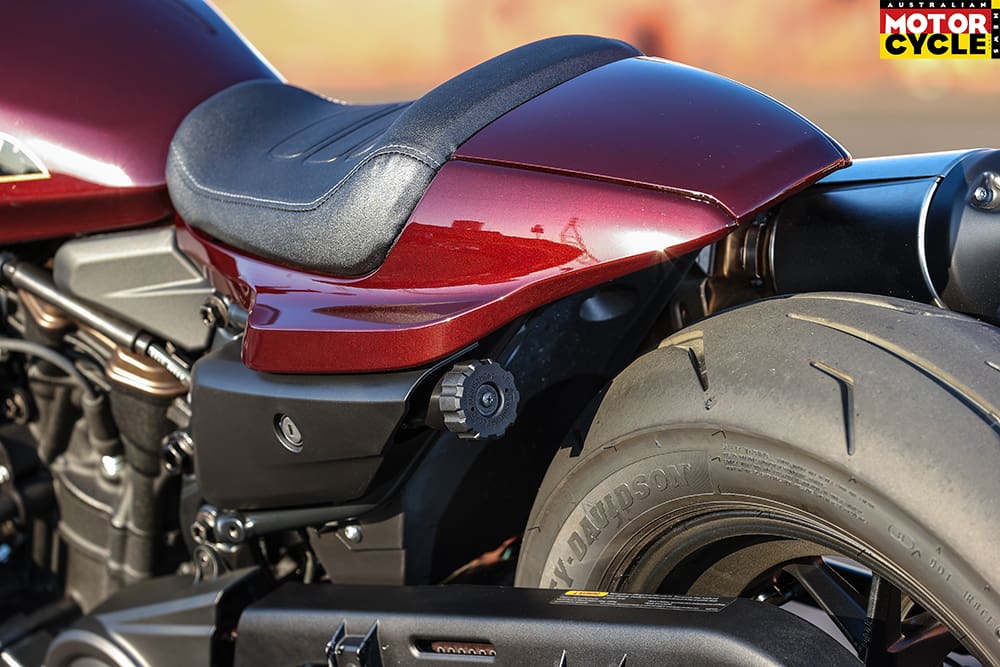
The standard solo seat is small and lacks padding, so long stints are not entirely comfortable, but the tank holds only 11.8L of fuel, so you’ll need to step off every couple of hundred clicks to refuel, giving some relief. Harley says an optional Sundowner solo seat has “strategically constructed foam [that] delivers pressure relief for all day comfort”; this would be a good box to tick when ordering your Sportster S.
Despite the otherwise silky smooth gearbox, I managed to snag neutral on occasion when shifiting from first to second. I did this a couple of times when accelerating hard from traffic lights, and felt like bit of a goose because of it, so you need to focus on that first upshift if you’re trying to impress your mates when the lights go green.
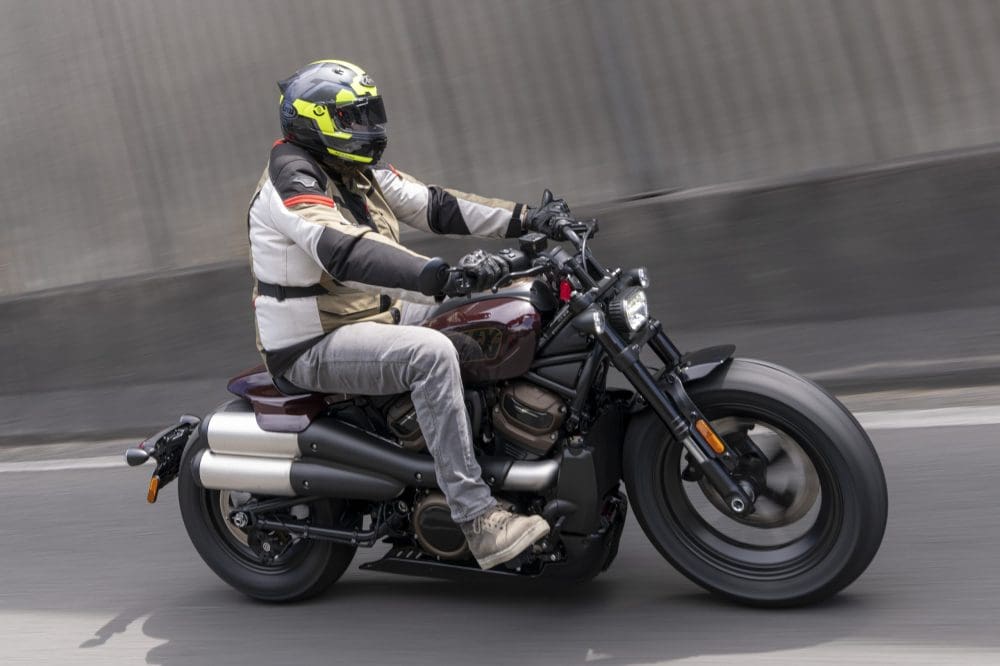
I reckon that chunky exhaust system looks great but it gets bloody hot under your right leg when poking around town on a warm summer’s day.
The styling department won the toss over the engineers when it came to the size of the mudguards; the tiny one up front and the miniscule one at the rear look cool, but they do bugger-all when it’s raining. I could feel the water on my back after about 100m of damp blacktop. The optional Passenger Kit comes with a ‘rainguard’ to keep your pillion’s rear-end dry.
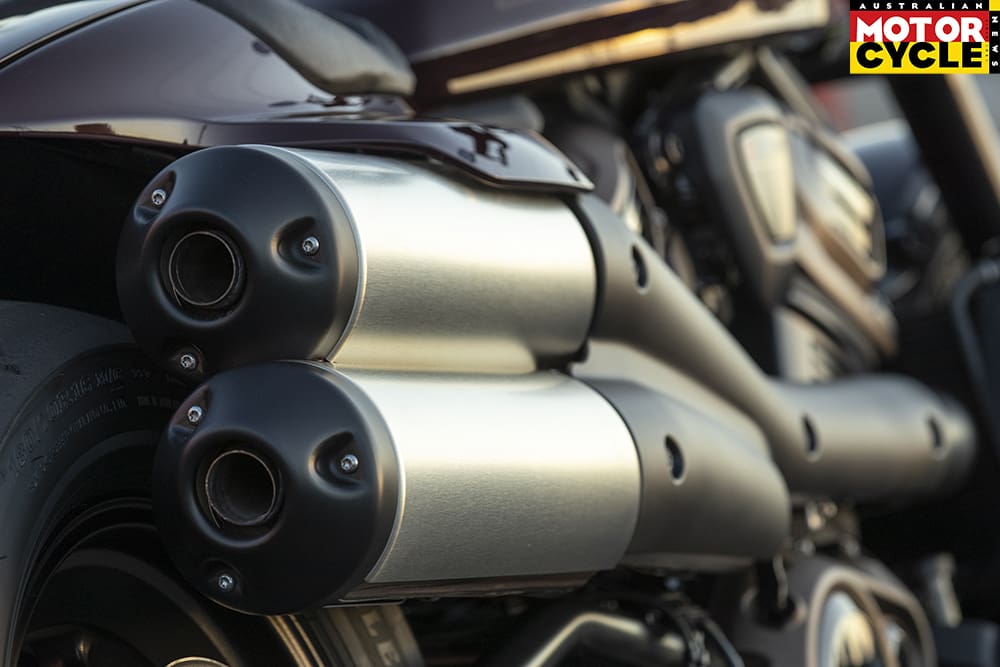
Build quality is of a high standard, with top-notch switch gear, vibe-free mirrors, adjustable levers and the like, but there are a few minor details on the Sportster S that could have been finished better, such as the rubber piece that acts as a heat guard on the exhaust (bump it and it comes off), the seemingly lackadaisical routing of the front brake lines and the wiring around the headstock, and the way the rear fender cowl and bodywork plastics rub together. No major complaints but I reckon some of these details could be better on a $26k bike. Oh, and have you noticed how most the marketing shots of the Sportster S show the right side of the bike? That’s because the engine, which is the centrepiece of the whole design, is beautifully finished on the right side, but on the left side it looks like the aftermath of a fight between a plumber and a sparky.
And while the keyless start is convenient, you still need a physical key for the steering lock and to open the fuel tank.
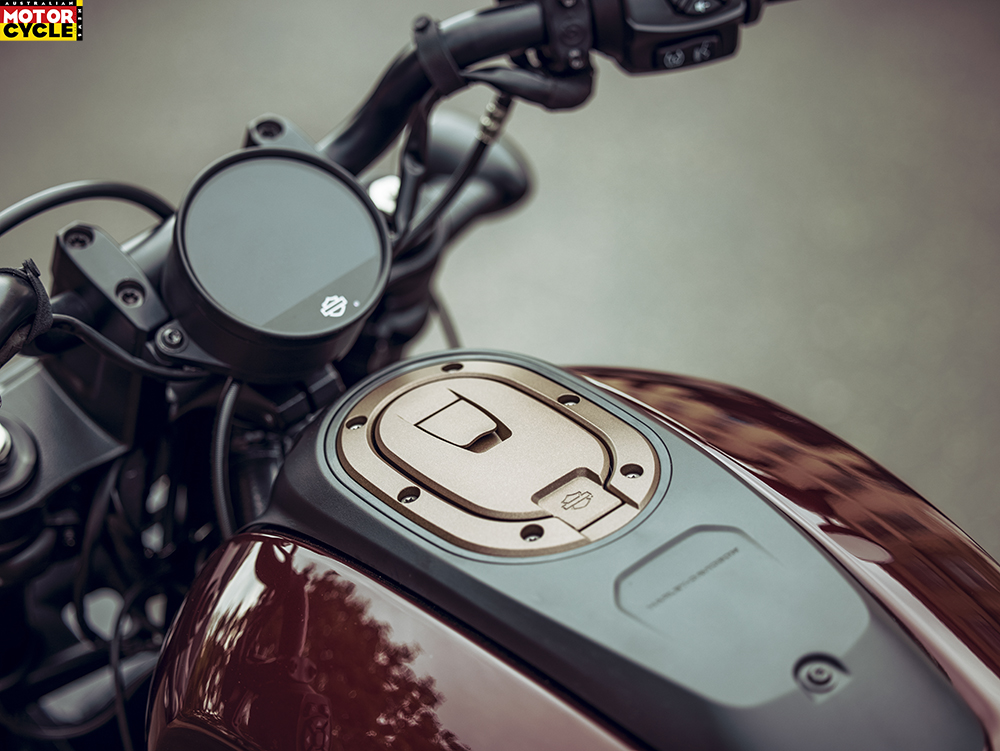
The verdict?
In a way, the Revolution Max 1250T is too much engine for the Sportster S… unless of course your thing is ripping up the rear tyre in a cloud of smoke and pulling monster wheelies on an angry-looking slammed bike with fat rubber. If most of your riding is in an urban environment and you don’t envisage long stints in the saddle, then the Sportster S could be your ideal weapon.
But if you want a bike that can do more than that, something you can take on weekend rides on country roads, for example, you might find that the Sportster S is too much of a compromise with its limited suspension travel, not-so comfortable riding position and small fuel tank.
With any luck Harley-Davidson will find another more deserving home for its Revolution Max engine in the not-too-distant future.
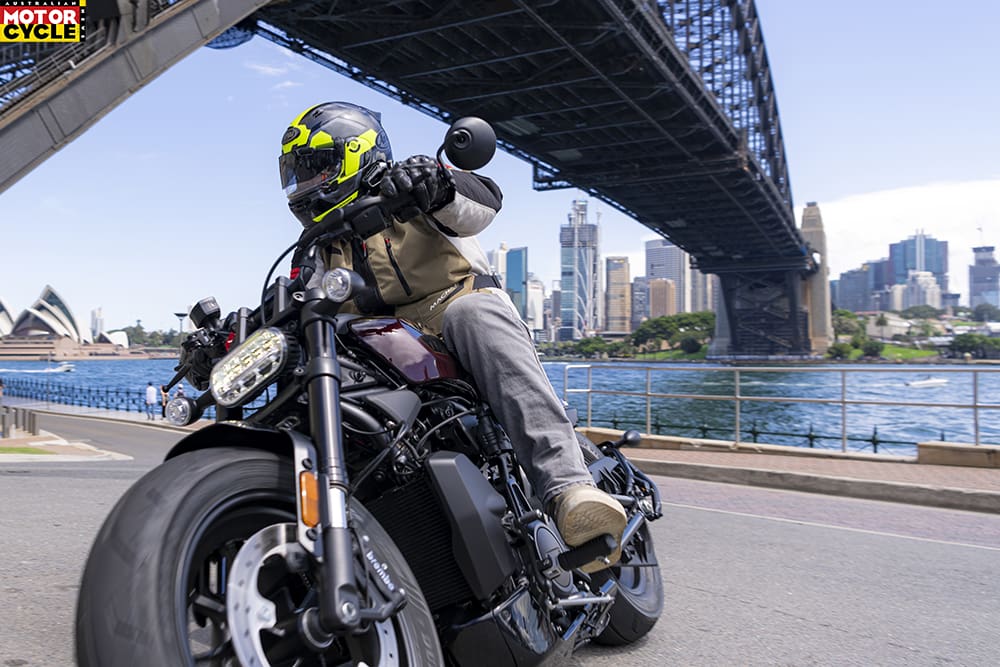
TEST: DEAN MELLOR & PETE VORST PHOTOGRAPHY INCITE IMAGES
